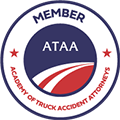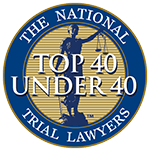We are no longer accepting these cases.
On April 1, 2020, the U.S. Food and Drug Administration (FDA) issued a total recall and removal of Zantac, a common heartburn medication available in both prescription and over-the-counter (OTC) versions, from store shelves due to an unacceptably high cancer risk. Zantac (ranitidine) has been found to contain high levels of the cancer causing chemical N-nitrosodimethylamine (NDMA). NDMA is used in aviation and rocket fuel lubricants and it is also the by-product of several industrial processes, including gasoline refining and the treatment of wastewater containing nitrogen. NDMA is also used to induce carcinogenesis in lab rats for cancer research. If you or someone you love got cancer from NDMA, you may be entitled to compensation through a Zantac lawsuit. Our Hagerstown mass tort lawyer is here to help you recover damages.
What Caused the NDMA Contamination That Lead to the Zantac Lawsuit?
The exact cause of the NDMA contamination in Zantac and other generic heartburn medications is still under investigation. Although the FDA advisory states that the level of contamination is "low", the levels have been found to be between 3,000 and 26,000 times higher than what the agency has determined to be "safe". During the period in which Boehringer Ingelheim and Sanofi manufactured and marketed Zantac, scientific research demonstrated a clear link between ranitidine, the active ingredient in Zantac, and NDMA. Specifically, when ranitidine comes into contact with water, it creates a chemical reaction that causes the formation of NDMA.
Despite the availability of this information, drugmakers chose not to disclose the risk to the government or to consumers. For years, due to a very high perception of ranitidine's safety, Zantac and its generic equivalents were heavily prescribed to adults and infants and sold over-the-counter. Zantac was used to treat: acid indigestion, heartburn, erosive esophagitis, gastroesophageal reflux disease (GERD), and Zollinger-Ellison Syndrome.
FDA Confirms NDMA Is a Probable Carcinogen
On September 9, 2019, Valisure, LLC and ValisureRX, LLC submitted a Citizen Petition to the FDA to request the Commissioner of Food and Drugs to issue a regulation, revise industry guidance, request a recall, and suspend sales of ranitidine from the U.S. market. The full petition may be read here.
On September 13, 2019, the FDA reported the discovery of NDMA in Zantac (ranitidine). See the FDA Statement alerting patients and healthcare professionals of NDMA found in ranitidine samples here.
On April 1, 2020, the FDA issued its recall notifying consumers, patients, and healthcare professionals of new studies showing risk to the public health. The recall states NDMA is a probable carcinogen and that sustained higher levels of exposure increase the risk of cancer in humans. The FDA has further determined that NDMA has been found to increase significantly in samples stored at higher temperatures, including temperatures the product may have been exposed to during distribution and handling by consumers. The testing also showed that the older a ranitidine product is, or the longer the length of time since it was manufactured, the greater the level of NDMA. These conditions may raise the level of NDMA in the ranitidine product above the acceptable daily limit.

























